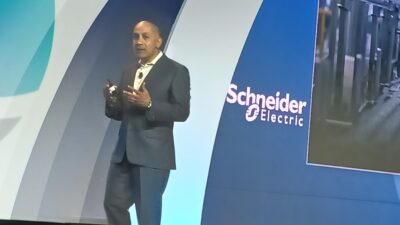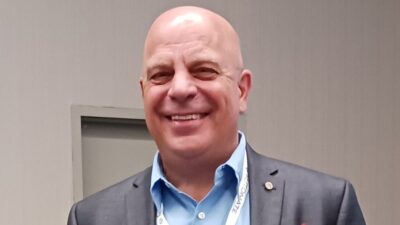An industrial engineer applies science, math, and engineering methods by solving problems and eliminating waste for a company.

Carlos Beatty Jr. enrolled at South Dakota School of Mines & Technology (SD Mines) in Rapid City, S.D., as a mechanical engineering major. It wasn’t long before he migrated to industrial engineering because he was drawn by the major’s “versatility.”
“It has more of a focus on business and psychology,” he said. “It’s the best to prepare you for the business world, hands down.”
Industrial engineers are sometimes called the engineer’s engineer. Most people, however, don’t even know what an industrial engineer does. This despite the fact that industrial engineering was the 7th most popular engineering degree in 2018, and the profession is expected to grow by 10% from 2016 to 2026, faster than the average for all other occupations.
Industrial engineers are trained to “manage the system,” said Paula Jensen, a lecturer in the IE department at SD Mines. They apply science, math, and engineering methods to operations to help ensure the company’s success by solving problems and eliminating waste. Industrial engineers often oversee efficiency and output.
By using engineering processes, industrial engineers solve the complex problems that industries face, Jensen said. “Industrial engineering is not as focused as the other engineering degrees,” said Beatty Jr., a 2013 industrial engineering and engineering management graduate of SD Mines. “You touch on a little of everything in IE. You’re a jack of all trades.”
Jensen said industrial engineers have a broader scope of education, with less laser focus on a specific engineering specialty. They need to have good interpersonal skills and the ability to understand and apply what’s found in the data to increase efficiencies.
“It’s an inch deep and a mile wide,” Jensen said. “It’s very broad. You’re going to do so many cool things in IE.”
For Beatty, 27, getting an IEEM degree led to a master of business administration degree from the University of South Dakota in Vermillion, SD, and currently a job in a post-MBA corporate leadership development program with Fiat Chrysler Automobiles (FCA) in Michigan. Prior to his current position, he worked as an operations associate engineer for Peabody Energy in Wyoming, and as a corporate planning engineer for Denso Manufacturing in Michigan.
He knows fellow industrial engineer graduates who are investment bankers, brokers, business owners, and in research development with chemical companies. Tim Cook, the CEO of Apple, for example, has a degree in industrial engineering. “We’re all over the place and at the end of the day, it’s what you want it to be,” Beatty said. “You can go anywhere you want.”
South Dakota School of Mines & Technology
– Edited by Chris Vavra, production editor, Control Engineering, CFE Media, [email protected].



